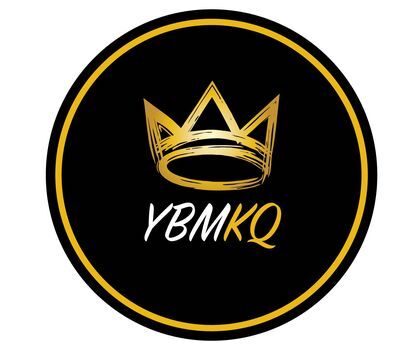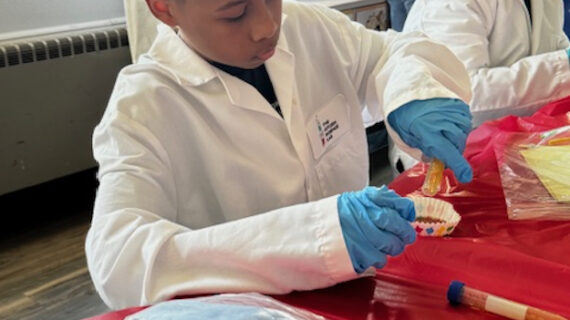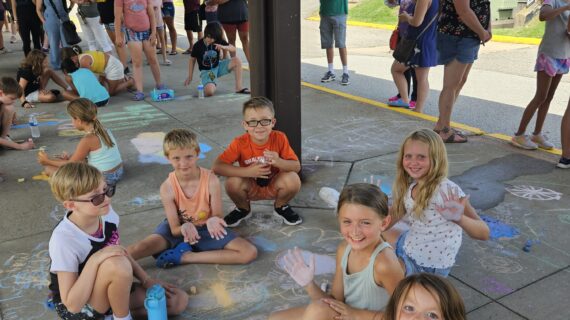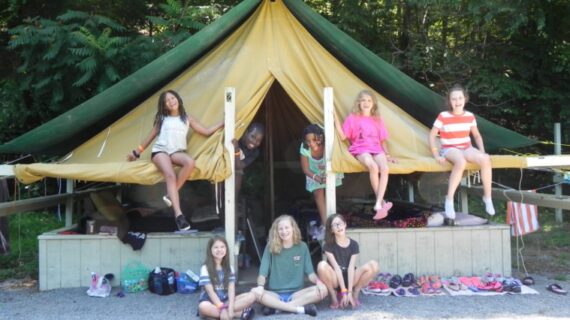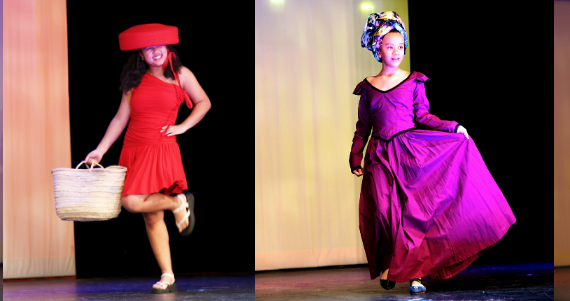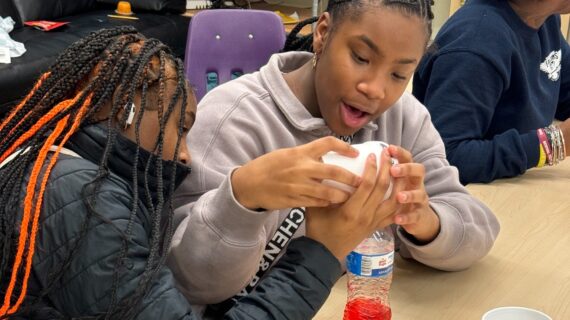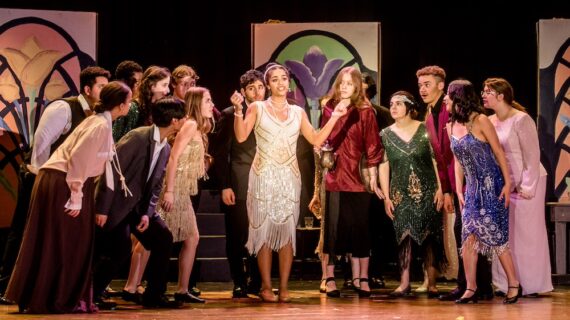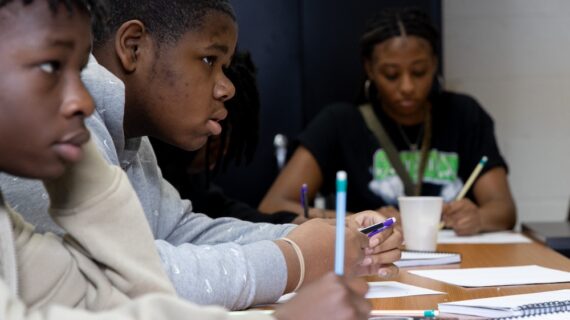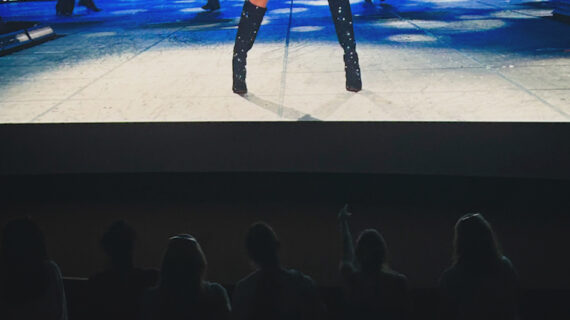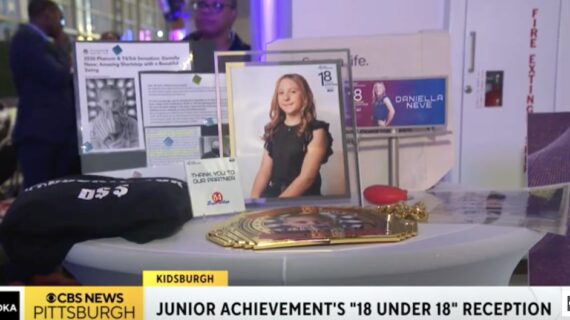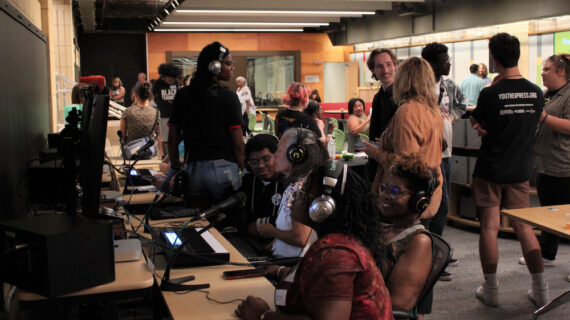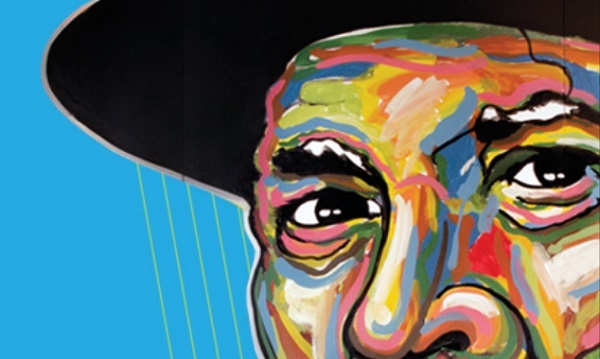
365 days of learning about Black history
Opinion essay by Laylah Dukes, a freshman at CAPA 6-12 and a member of SLB Radio’s Youth Media Corps. Photo above courtesy of the August Wilson African American Cultural Center.
Ask a classroom full of students to name the first African American figure who comes to mind, and they’ll likely say Rosa Parks, Martin Luther King Jr, Harriet Tubman or Jackie Robinson. Each year during Black History Month, I watch my classmates learn about the same tiny handful of people.
But those are just four exceptional people out of so many thousands of history-making Black Americans. And what about the incredible range of young, gifted, Black figures around us who are making history every day?.
Many Pittsburgh-area teachers and parents don’t really discuss Black History except for a few moments each February. And that has an impact: Pittsburgh’s kids may know very little about this part of our country’s history and our city’s history.
To find out if this was true, I was curious how many local African Americans are known by my peers. So I asked other students, “When it comes to African American figures in Pittsburgh, who is the first that comes to mind?”
“None come to mind off the top of my head.”- Jozlin, West Mifflin, sophomore
“I don’t know, honestly.”- Robert, CAPA 6-12, junior
“I don’t know”- Christian, Lincoln Park, junior
There are numerous impactful African American figures that can be found within Pittsburgh right now and in our city’s recent history. One of those is our current mayor, Ed Gainey. Mayor Gainey was born in Pittsburgh and grew up in East Liberty. He was raised by a single mother and as a boy he learned to look to others for encouragement and help as he pursued his education.
The African proverb “it takes a village to raise a child” is something Gainey experienced first-hand. As an adult, he was inspired by his own experiences to pass that help onto others in need. Gainey became a State Representative in Harrisburg on the front line advocating for families and as mayor he strives to make Pittsburgh a city where families can be safe and get the tools they need to be successful.
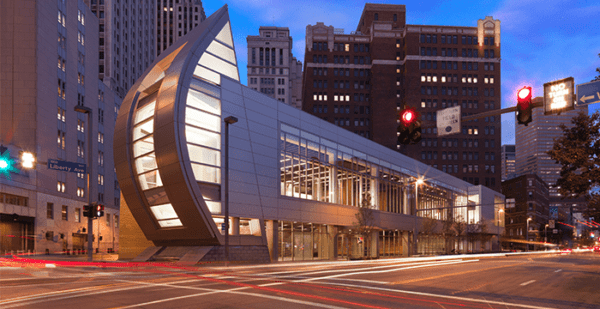
August Wilson, also known as “theater’s poet of Black America” was an American playwright. He is known for his award-winning plays, many adapted into successful movies, that explore the Black experience throughout the past century. But while many Pittsburghers know about Wilson’s work, how much do you know about his personal life?
Born in 1945, Wilson lived in the Hill District and grew up in poverty. He was one of five siblings that lived in a house with only two rooms. They had no hot water and were constantly surrounded by the institutional racism and discrimination that befall African Americans. August often explained that he got his education from what he called “the four B’s”: the blues, Jorge Luis Borges, Amiri Baraka and Romare Bearden.
“The foundation of my writing is poetry”- August Wilson
Despite all the difficulties of his childhood, Wilson went on to win at least 28 awards including a Tony Award for Best Play, a Pulitzer Prize for Drama, the Whiting Award for Drama, and so many other tributes. Does the play “Fences” sound familiar? Wilson is the creator behind that masterpiece. He can inspire all of us – including your children – by demonstrating that no matter how or where you grow up, you have the power to blow the socks off the world!
Pittsburgh’s students aren’t just missing out on all they could learn about general Black history. We’re also not learning about figures in our own city.
I asked other students: “When it comes to African American youth figures, who is first to come to mind?”, to see how many young people are known.
“I don’t know. I’m gonna skip that question, I don’t know.”- Alyssah, CAPA 6-12, freshman
“Laylah Dukes.”- Staff Sgt. Dukes, 34 (thanks, Dad!)
“Janel Young.”- Addie Daniels, 32
Janel Young is a Pittsburgh native muralist painter and community leader. She went to Schenley High School as an International Baccalaureate student athlete. She then attended Penn State University as a Bunton-Waller Fellow. There, she studied Business Marketing and International Studies.
In 2013, she moved to New York City to work in public relations as a digital content strategist. October 23, 2019, was declared “Janel Young Day” in the city of Pittsburgh to celebrate her consistent efforts to fill the community with her joyful, colorful artwork. Young has found numerous opportunities to display her art, including at the Three Rivers Art Festival, the Variety Spectacular, on Aerosol Mural and many places and events. Janel had a vision and put in the energy to bring it to life. (Want to learn more about Young and see her art? Click here.)
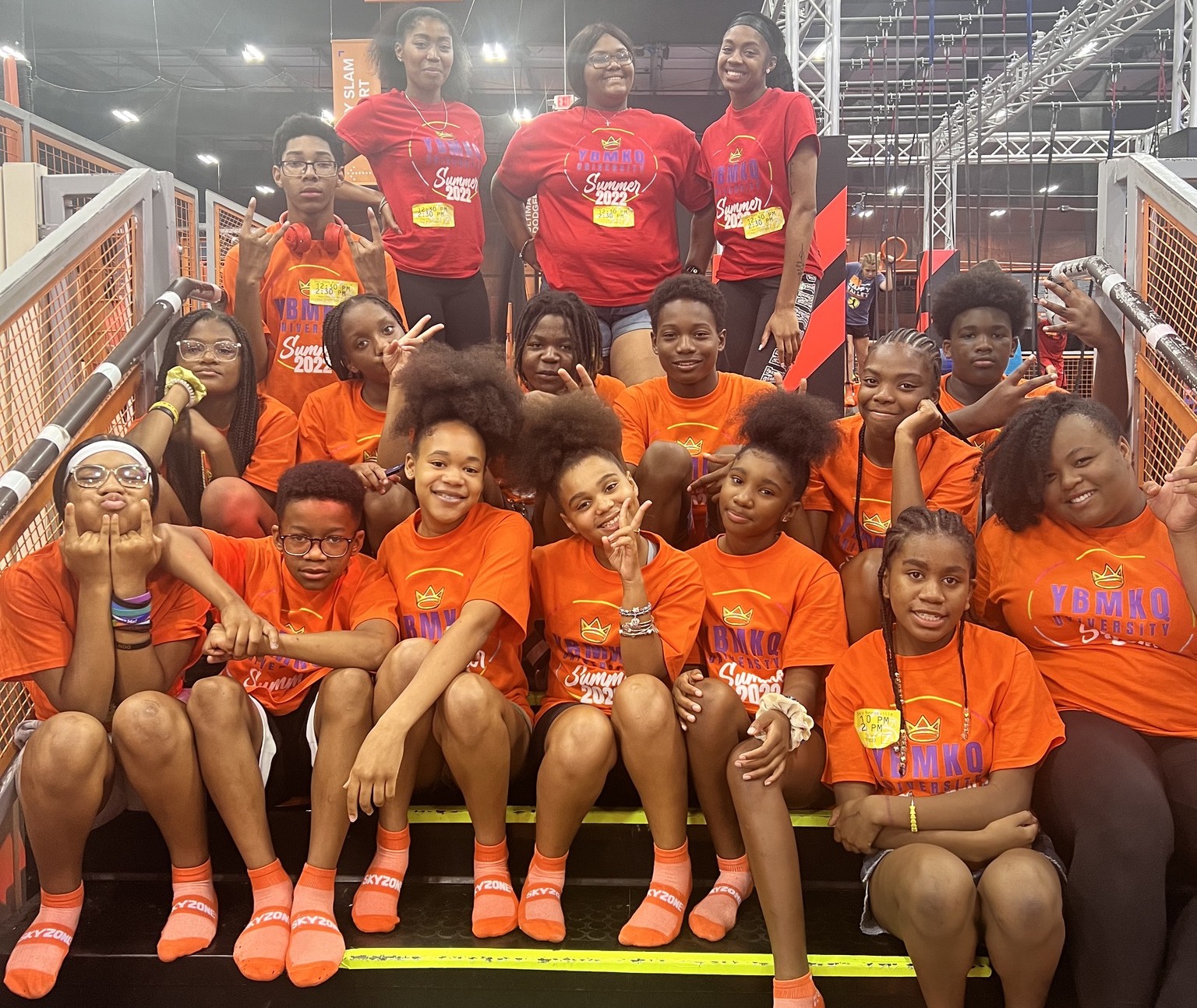
Here is another important figure in Pittsburgh today: The name Young Black Motivated Kings and Queens has such a beautiful ring to it, because we certainly are that. Kahlil Darden is the founder and CEO of this organization, which encourages youth of all ages — from elementary school to high school students — to become leaders and help make a better community for all.
Darden found inspiration to start up YBMKQ after his uncle was tragically murdered at gunpoint. As a student, he founded the first Black Student Union at Penn Hills High School in 2017. Today, YBMKQ is bringing new educational opportunities to the kids of Penn Hills and will be opening a new community center in Verona that will honor the legacy of Darden’s godson, De’Avry A. Thomas, who was murdered in 2022.
Imagine if students in Pittsburgh were taught about people like this.
As we discover the sacrifices they’ve made and the triumphs they experienced, we could all be inspired to believe that whatever we dream we can achieve and we could put those dreams into action. This kind of learning can change Pittsburgh and even change the world beyond our community.
The final question I asked other students was about their views on the public school system. “Do you think the school system does well teaching students about Black history? If you agree or disagree, why?”
“No, not really, because we don’t know enough or nearly as much as we should.”- Laniya, CAPA 6-12, junior
“I disagree. It could be from the curriculum above them. Different factors could play a part in it, like depending on where the school is. I feel like it’s hard, because even when I was in school, we got taught the same figures— so yeah, definitely feel like it could be improved.”- Briea McRoberts, 34
“In general, not really—so I would have to say I think it does a terrible job teaching Black history. It’s not as popular. ‘Cause if you look at it, most people aren’t looking for the history of African Americans. They’re just content with what they have, and they move on with their lives.”- Benaiah, PA Leadership Charter School, freshman
I’m confident that schools could be doing so much more to teach Black history. This learning shouldn’t just happen in February. As you can see, this article has been published in March, because Black history can and should be discussed and taught year-round. It’s true that young people can explore and learn on their own time all year long, which I highly recommend. But adults should be teaching us, as well – not just our teachers, but all the adults who surround us.
What if this year, even though Black History Month has ended, we let this be a learning moment where we all teach and inspire each other?
How are schools tackling this issue? Check out this story about progress in Brownsville School District.
